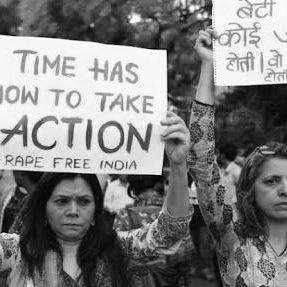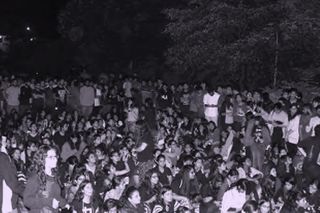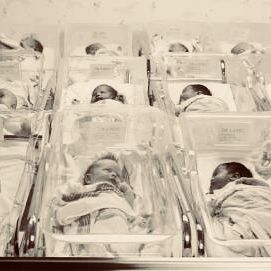
Female Students Protest Sexist Hostel Rules
Make the rules applicable to everyone.

Women on campuses across the country have been protesting for years against unequal rules for men’s and women’s hostels, especially those related to curfews. From Pinjra Tod (Break the Cage), which originated in Delhi’s Jamia Milia Islamia university in 2015, to the the protest on Mumbai University’s Kalina campus early last year, years of discriminatory monitoring of female students’ movements and dress have been at the core of this backlash.
The latest students fed up with the status quo are from the Hidayatullah National Law University (HNLU) in Raipur, according to Hindustan Times. Since Monday, the co-ed hostel’s female residents have been protesting rules that keep them from using hostel and campus common areas at night, and prohibit them from wearing shorts outside their rooms or on campus grounds.
However, students said, these rules are not applicable to male students living in the same hostel.
“The protest has primarily started because of the discriminatory implementation of rules in the girls hostel. While both the girls’ and the boys’ hostel have hostel timings of 10:30 pm, it is only implemented in the girls’ hostel,” says a law student of the university, requesting anonymity, told Hindustan Times. “The warden has repeatedly harassed girl students over their clothes and timings. The common areas in the girls’ hostel have been locked.”
Another student quoted by the Times said, “There have been occasions when the parents have been called up at 10:30 in the night to inform that their daughter is wearing shorts outside the hostel.”
A law student leading the protest said that it was carried out to deal with casual instances of sexism by university authorities, a charge said authorities dispute.
“One of the major issues is the timing by which the students should enter the hostel. We have 10.30 in-timing for the hostels but they are demanding that there should be no such timing and girls should be free to roam in the campus, which is technically not possible,” the registrar-in-charge of HNLU told HT. “Then they want library and cafeteria to remain open for 24 hours which means that university will be open 24 hours. Then there is some issue of warden, which we will resolve.”
When students from Mumbai University had protested last year against curfew timings, the then-vice-chancellor, Sanjay Deshmukh, had announced that both men and women will be subject to the same rules on the Kalina campus and that the library would remain open round-the-clock for students of both genders. However, the concession to basic equality didn’t come without conditions: DNA reported that under the new rules, students had to sign undertakings declaring they would be responsible for their own safety beyond campus boundaries. Additionally, students are now required to carry their identity cards when not in their rooms and inform campus authorities when they leave campus late at night.
Women’s entry into higher education in the country has already been a struggle that doesn’t seem to end. These nationwide protests are a peek into a system that curtails women’s voices and assertions, while simultaneously claiming to empower them. Female students across campuses and universities have said sexist rules like those at HNLU and elsewhere — always under the guise of ‘protection’ — have made them feel inferior to male students.
Protection and freedom can go hand-in-hand — one need not forgo one for the other. For instance, IIT-Roorkee did away with restrictions in its hostels for male and female students; at the same time the school deployed security personnel on night patrol to ensure the safety of all students. Restricting movements at night is not only hampering a woman’s right to free movement, but also fostering an atmosphere of danger and threat — which might not even exist in the first place. Have rules, but let them be equal. And if really is about safety, male students need it, too.
Anubhuti Matta is an associate editor with The Swaddle. When not at work, she's busy pursuing kathak, reading books on and by women in the Middle East or making dresses out of Indian prints.
Related


Report Finds GoI‑Sanctioned Adoption Homes Across India Neglectful
